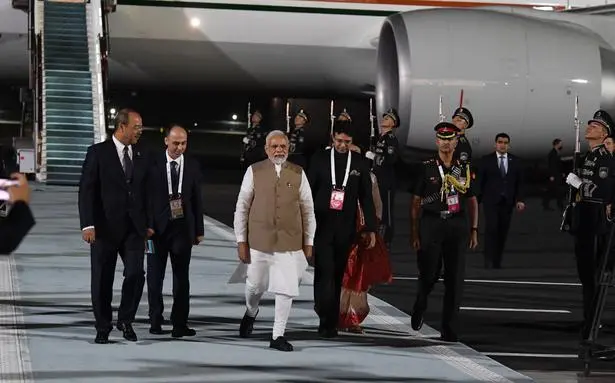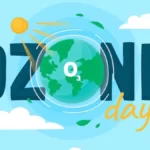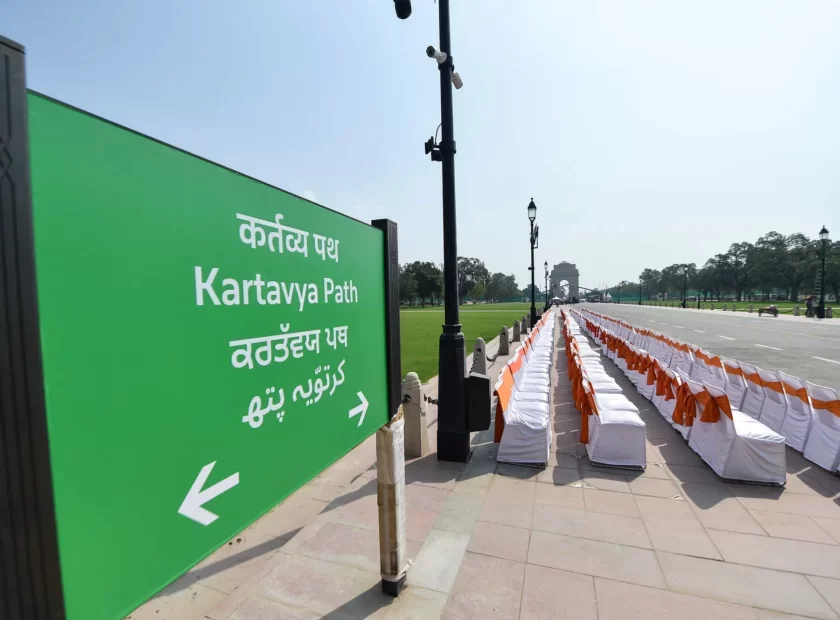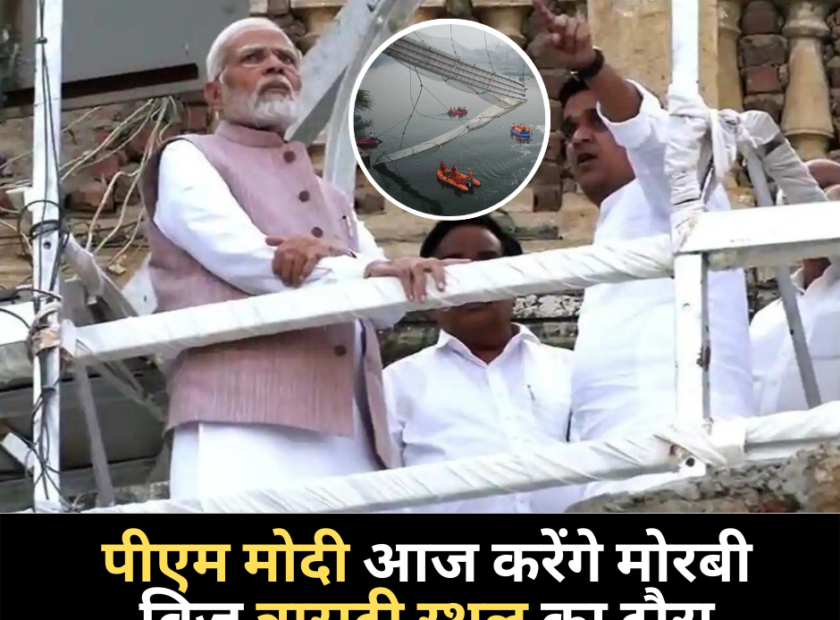
PM Modi arrives in Samarkand for the Shanghai Cooperation Organisation meeting
Modi and Xi will meet in person for the first time on Friday since the April 2020 LAC standoff. Before the Shanghai Cooperation Organization (SCO) Council of Heads of States meeting, Prime Minister Narendra Modi travelled to Samarkand late on Thursday night. There, he will meet with Chinese President Xi Jinping and Pakistani Prime Minister Shehbaz Sharif for the first time since April 2020 LAC standoff.
Who arrived along with PM Mr. Modi?
It has been rumoured that Mr. Modi’s tardy arrival was intended to avoid any awkward “photo ops” whilst also relations with China and Pakistan continue to stay tense. Mr. Modi was the final of the leaders of eight SCO members as well as 7 invitees to start arriving here, as well as he missed both the Pre-Summit dinner and the tree-planting ceremony hosted by Uzbekistan President Shovkat Mirziyoyev.
At the airport, Prime Minister Narendra Modi was greeted by his Uzbek counterpart Abdulla Aripov, ministers, the governor of the Samarkand region, as well as senior officials. He too is scheduled to have bilateral meetings with Putin as well as other world leaders on the sidelines of the summit, which include Uzbek President Shavkat Mirziyoyev.
Absence of Mr. Modi
On Thursday, other leaders held several bilateral discussions, including an eagerly anticipated encounter between Chinese President Xi Jinping and Russian President Vladimir Putin for the very first time since the start of the war in Ukraine. Mr. Modi’s absence was notably noticed during this period. Mr. Putin met with 6 other leaders, notably Iranian President Ebrahim Raisi, while Mr. Xi held a total of eight bilateral encounters. In the meantime, Mr. Sharif had seven bilateral talks while seeking cooperation from the SCO about the flood situation in Pakistan.
Bilateral meetings
The Ministry of External Affairs has announced that Mr. Modi will meet separately with Mr. Mirziyoyev, Mr. Putin, plus Mr. Raisi on Friday. It is anticipated that Mr. Putin’s excellent performance in Uzbekistan, where he is joined by a sizable group, will exude confidence and refute Western misconceptions about the difficulties he faces in the conflict in Ukraine. The SCO nations in attendance are also anticipated to express their opposition to the U.S. and EU’s proposed “oil price ceiling” and other “economic constraints” or unilateral penalties.
India anticipates conversations on current challenges and the growth of the group
Iran is anticipated to be admitted into the Eurasian grouping by the SCO members on Friday. Iranian President Ebrahim Raisi, who is invited to this meeting, will officially join as a member at the following SCO summit, which is scheduled to take place in India by 2023. Mr. Modi is anticipated to emphasise connectivity via Iran’s Chabahar port, the necessity of security as well as territorial integrity in the area, as well as cross-border terrorism, during his speech.
Along with the “Samarkand Declaration” signed by the eight members of the group, several agreements, including the induction of Iran, are anticipated to be made public. The Central and South Asian grouping will also designate Egypt, Qatar, plus Saudi Arabia as “conversation partners,” a sign that it is aiming to include West Asia within the discussions. According to Rakhmatulla Nurimbetov, the national coordinator of the SCO from Uzbekistan, who might soon transfer over to Indian authorities when India becomes the SCO Chair for the following year, the growth of the group as well as its conversation partners signifies a “breakthrough” for the organisation.
A total of 30 documents are anticipated to be made public, including an agreement “on good neighbourliness, friendliness, and collaboration” as well as a distinct joint statement here on a draft expressingly in view of Pakistan’s flood crisis, “Response to Climate Change”





